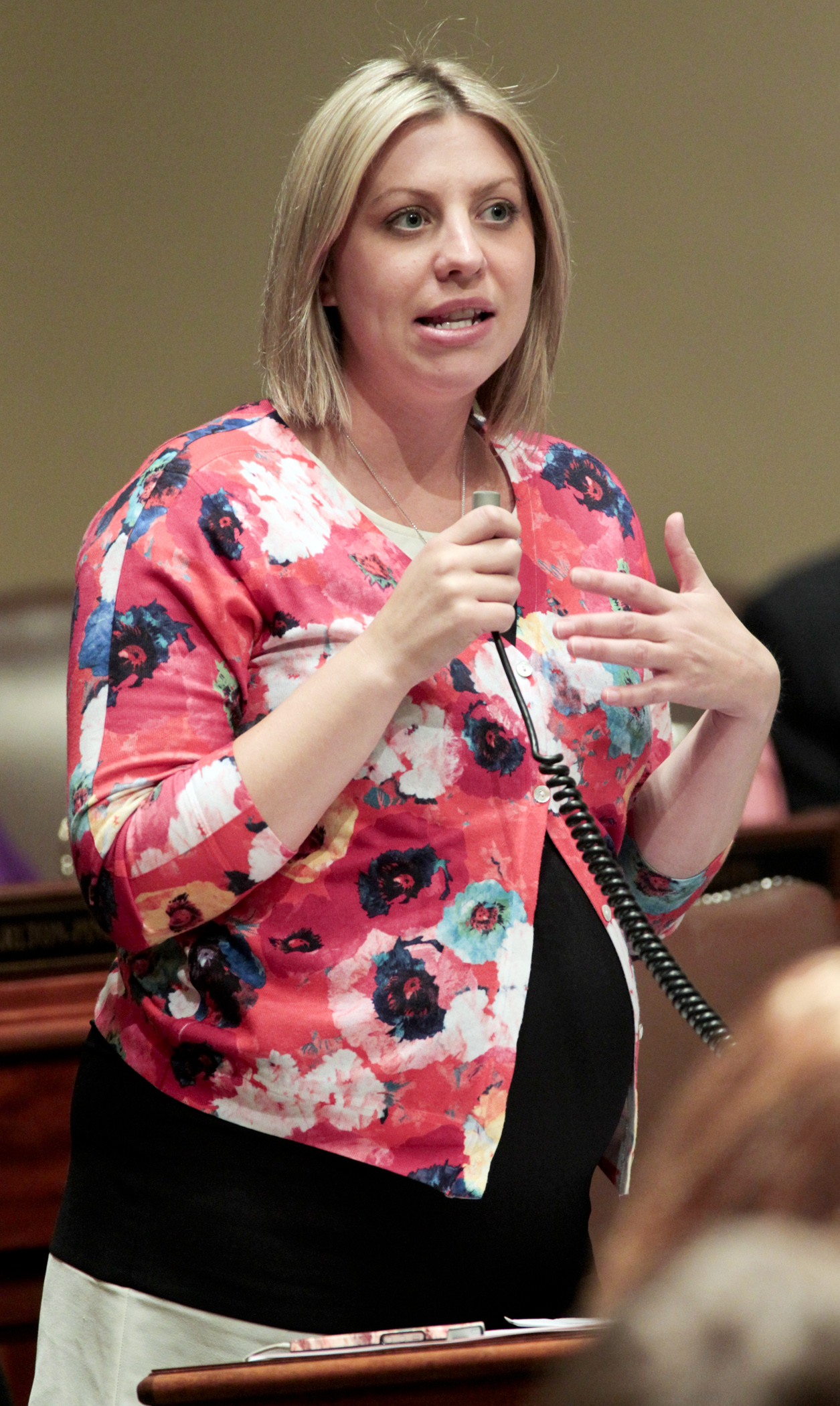Women’s Economic Security Act steps closer to law
 Rep. Carly Melin answers a member’s question during the May 7 floor debate on the conference committee report on HF2536, the so-called “Women’s Economic Security Act.” Photo by Paul Battaglia
Rep. Carly Melin answers a member’s question during the May 7 floor debate on the conference committee report on HF2536, the so-called “Women’s Economic Security Act.” Photo by Paul BattagliaOn a 104-24 vote Wednesday, the House passed a conference committee report on HF2536*/SF2050, sponsored by Rep. Carly Melin (DFL-Hibbing) and Senate President Sandy Pappas (DFL-St. Paul), but not before an hour of questioning and a motion to refuse the report. It now awaits Senate approval before heading to the governor’s desk.
Questions arose on the floor about the “familial status” section of the report, and whether people given this status would receive “special treatment” from employers.
“This is not about giving people special treatment,” Melin said, echoing her statements from the conference committee. “People would still be required to fulfill their job obligations. This is about not discriminating against people. You can’t discriminate because someone has children.”
Familial status is currently protected under The Minnesota Human Rights Act, but only when it comes to housing. Under the bill, familial status would be extended to a protected status under employment. A type of discrimination could include not giving someone a promotion, assuming they would rather spend time with their children. Melin said people with children are half as likely to be offered a promotion as those who are single and childless.
[Watch the full video archive of Wednesday's House floor session here]
A few provisions of the conference committee report would:
- expand unpaid leave under the Minnesota Parental Leave Act from six to 12 weeks and allow the use of leave under the Parental Leave Act for pregnancy-related needs;
- allow mothers to stay in the workforce by expanding family leave and providing reasonable accommodations for pregnant and nursing employees;
- decrease the gender pay gap through the participation of women in high-wage, high-demand occupations in fields such as science, technology, engineering, and math;
- support the development of high economic impact women-owned businesses in nontraditional industries;
- require private sector businesses with 40 or more employees seeking state contracts over $500,000 to certify no pay gaps exist between employee classes as defined in the EEO-1 Report (formally known as the "Employer Information Report"), a government form requiring many employers to provide a count of their employees by job category and then by ethnicity, race and gender;
- allow grandparents to use existing earned sick leave to care for an ill or injured grandchild;
- address negative economic consequences of domestic violence, stalking and sexual assault;
- expand unemployment insurance eligibility currently available to victims of domestic violence to include victims of stalking and sexual assault;
- allow employees to use existing earned sick leave to recover from sexual assault, domestic violence, or stalking; and
- enhance retirement security by considering a state retirement savings plan for those without an employer-provided option.
Related Articles
Search Session Daily
Advanced Search OptionsPriority Dailies
Legislative leaders set 2026 committee deadlines
By Lisa Kaczke Legislative leaders on Tuesday officially set the timeline for getting bills through the committee process during the upcoming 2026 session.
Here are the three deadlines for...
Legislative leaders on Tuesday officially set the timeline for getting bills through the committee process during the upcoming 2026 session.
Here are the three deadlines for...
Latest budget forecast projects nearly $2.5 billion surplus, but red ink down the road
By Mike Cook Three weeks before Christmas, state budget officials provided some merriment to Minnesotans. However, Grinch-like transformations lurk.
Released Thursday, the November ...
Three weeks before Christmas, state budget officials provided some merriment to Minnesotans. However, Grinch-like transformations lurk.
Released Thursday, the November ...